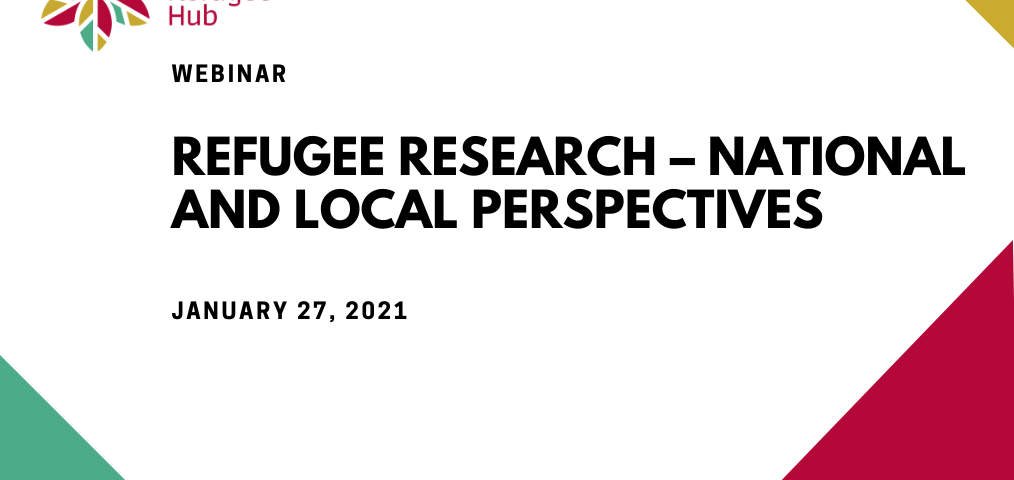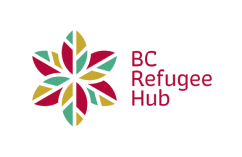BC Refugee Training Webinar: Refugee Research – National and Local Perspectives

UNHCR: #StandUp4Migrants Toolkit
January 25, 2021
BC Refugee Hub Training Webinar: Skilled Immigration as a Solution for Refugees
February 1, 2021BC Refugee Training Webinar: Refugee Research – National and Local Perspectives

Presented by the BC Refugee Hub, in this webinar session presenters shared their research findings on a variety of topics concerning refugees in Canada.
DATE: Wednesday, January 27, 2021
TIME: 9:30 a.m. to 11:30 a.m. PDT
PRESENTATIONS:
Do refugees stay in the place they arrive?
Dr. Jonathan Amoyaw
Rachel McLay, Dalhousie University
Dr. Yoko Yoshida, Western University
Using data from the Longitudinal Immigration Database (IMDB), presenters describe the retention rates of refugees, in comparison to other immigrants, across selected provinces. Presenters will introduce the public data source to obtain information on retention and economic outcomes, which can be customized for specific groups of newcomers.
Are refugees good for Canada?
Sandra Elgersma, UNHCR Canada
Despite the challenges they face, refugees embrace the opportunity Canada provides to build a better life and become important contributors to the country’s economy and cultural diversity. This presentation will explore the findings of UNHCR’s report Are Refugees Good for Canada and address the potential impact of COVID-19.
A longitudinal investigation of employment and income trends among Syrian refugee families in British Columbia
Jonathan Bridekirk, York University
Mahi Khalaf, ISSofBC
Dr. Kathy Sherrell, ISSofBC
As part of the SyRIA.lth national research project, this presentation will be examining 3-years of longitudinal survey data examining employment rates, income sources, and financial stability among Syrian refugee individuals and families living in British Columbia. Data will be presented both at the individual level and household level to examine trends and changes over time.
SPEAKERS:
Dr. Jonathan Amoyaw:
Dr. Jonathan Amoyaw is a sociologist whose research interests intersect the areas of immigration, health, and social inequality. A key aspect of his research focuses on the well-being and integration of immigrants and refugees in Canada. Dr. Amoyaw has researched the recruitment and retention of immigrants destined to the Atlantic region and the well-being of refugees and their children.
Jonathan Bridekirk:
Jon Bridekirk is a Ph.D. Candidate in the Social and Personality Psychology Ph.D. program at York University, Toronto, Ontario. Jon received both his Bachelor of Arts (Honours) in Psychology and Master of Arts in Experimental Psychology at Laurentian University. More recently, Jon worked in the Research and Academics Division at the Waypoint Centre for Mental Health Care. Jon’s research focuses on many aspects of refugee resettlement and integration, such as examining relative deprivation and the impact of education on employment for Syrian newcomers.
Sandra Elgersma:
Sandra Elgersma works for the UNHCR in Canada as Assistant Resettlement and Complementary Pathways Officer. In this role, she is the focal point for complementary pathways, labour mobility in particular. Prior to joining the UNHCR, Ms. Elgersma was an Analyst and Chief at the Library of Parliament, where for many years she was assigned to support the House of Commons Standing Committee on Citizenship and Immigration.
Mahi Khalaf:
Mahi Khalaf is the SyRIA.lth Project Coordinator in BC as well as Settlement Orientation Services (SOS) Program Manager at ISSofBC. She has worked internationally for 15 years to support research and building capacity of non-profit organizations in the Middle East and Southern Africa. In the last 5 years she has shifted her work to the settlement sector with ISSofBC, where she supported the resettlement of Syrian Government Assisted Refugees and moved on to manage the Vancouver and Richmond Settlement Site in recent months Mahi has shifted her work to support Refugee claimants. Mahi holds a Masters of Arts in International Affair from Carlton University’s Norman Paterson School of International Affairs.
Rachel McLay:
Rachel McLay is a PhD student in the Department of Sociology and Social Anthropology at Dalhousie University. She studies political attitudes, perceptions of social change, and immigration in Atlantic Canada
Dr. Kathy Sherrell:
Kathy Sherrell is the Associate Director – Settlement Services at ISSofBC. She takes a lead role in program development and evaluation, contract negotiations and oversight, and quality assurance and standardization. Kathy holds a PhD in Geography with an emphasis on refugee resettlement in Canada. She continues to be actively engaged in research with refugees. At present Kathy is a co-investigator on two pan-Canadian, multi-year refugee research projects, as well as a lead on numerous internal research projects and client needs assessments.
Dr. Yoko Yoshida:
Dr. Yoko Yoshida is an Associate Professor in the Department of Sociology at Western University. Her research focuses on applied social statistics in the areas of immigration, integration of immigrants, and social inequality in Canada. In her current projects, she studies on retention and economic outcomes of immigrants and refugees in Canada with a specific focus on Atlantic Canada.



